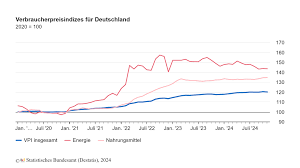Introduction
Inflation has become an increasingly pressing issue in South Africa, affecting the economy and the daily lives of its citizens. With rising prices for essential goods and services, understanding the factors contributing to inflation is crucial for consumers, businesses, and the government alike. This article delves into the recent trends and implications of inflation in South Africa as of 2023.
Current Inflation Rate
As of September 2023, South Africa’s annual inflation rate stands at 7.2%, a slight decrease from 7.8% reported in August. This decline, while indicating a temporary respite, still highlights significant challenges faced by the economy. The primary drivers of inflation include soaring food prices, increased fuel costs, and lingering supply chain disruptions exacerbated by global events.
Food Prices and Consumer Impact
Food inflation has been particularly concerning, as the price of staple items such as bread, maize meal, and cooking oil continues to rise. According to Statistics South Africa, the food index increased by 9.5% year-on-year in September 2023. This surge in the cost of living is affecting many households, forcing consumers to cut back on discretionary spending and seek more affordable alternatives.
Economic Reactions
The South African Reserve Bank (SARB) has responded to inflationary pressures by adjusting the repo rate multiple times this year, aiming to curb rising inflation by stabilizing the currency and controlling excess demand. The current counterpart measures have included increased interest rates to disincentivize borrowing and spending. As the economy grapples with these changes, forecasts suggest potential stagnation in the growth rate, which could further complicate the financial landscape for consumers and businesses.
Conclusion
In conclusion, inflation in South Africa remains a critical issue that affects all aspects of life. As price levels fluctuate, the economic burden on households and the implications for long-term growth are a topic of great concern. Moving forward, the government and monetary authorities must work diligently to address inflation while balancing economic growth. For consumers, staying informed about economic conditions and adjusting budgets accordingly may help mitigate the impact of rising prices in the coming months.


